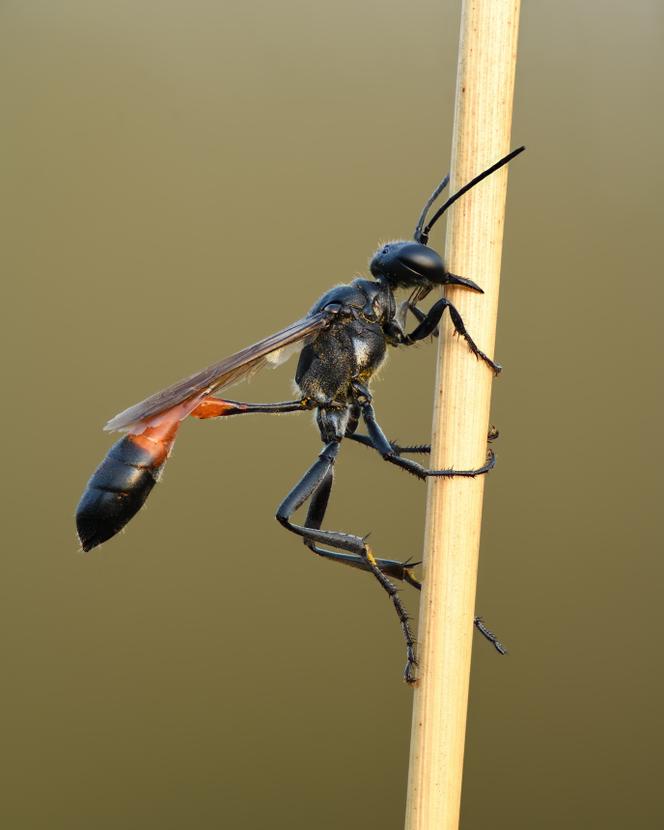


"You don't need billions of neurons to make quite complex decisions. Perhaps insects have solved the same problems in different, simpler ways to humans and other vertebrates." This almost vexing remark for the human species was how Jeremy Field, professor of evolutionary biology at the University of Exeter, England, responded by email to one of our questions about a study published on May 9 in Current Biology. This work, of which he is the lead author, was conducted on a species of digger wasp, Ammophila pubescens.
The researcher and his colleagues observed the females, who have the unique trait of digging holes in the sand to make a nest to lay a single egg, and then feeding the larva until it transforms into a chrysalis. Each wasp can nurture several nests. Field insisted that the experiment take place in the natural environment, while "most studies of insect memory [and] learning have focused on showing that insects can learn to associate different cues (smell, time of day, location) with food rewards − studies carried out almost entirely in the lab in unnatural situations like mazes, honey feeders etc."
You have 74.72% of this article left to read. The rest is for subscribers only.
